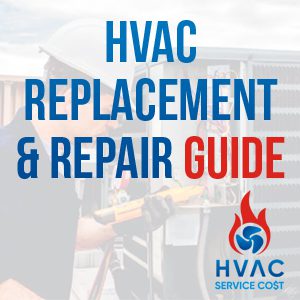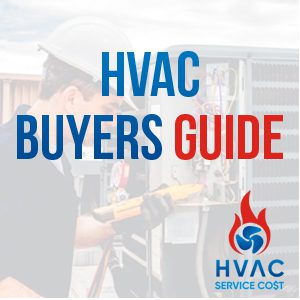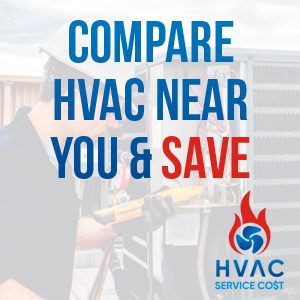
Top 8 Reasons Why Your Air Conditioner is Not Cooling
A malfunctioning air conditioner during the sweltering heat of summer can be a frustrating experience. If you’re facing a situation where your air conditioner is not cooling your home effectively, it’s essential to identify the underlying causes and take appropriate action. In this blog, we will explore the top eight reasons why your air conditioner may not be cooling properly and highlight the importance of seeking professional HVAC help.
COMPARE QUOTES NOW1. Clogged Air Filters
Clogged air filters are a common culprit for reduced cooling efficiency. Over time, dirt, dust, and debris accumulate on the filters, restricting airflow and hindering the cooling process. Regularly changing or cleaning your air filters is a crucial maintenance task that can improve cooling performance. If you’re unsure how to clean or replace your air filters, it’s advisable to seek assistance from an HVAC professional.
2. Refrigerant Leaks
Refrigerant is responsible for absorbing heat from the indoor air, cooling it, and then releasing it outside. If your air conditioner has a refrigerant leak, it can significantly impact its cooling capacity. Signs of a refrigerant leak include reduced cooling, ice buildup on the refrigerant lines, or hissing sounds near the unit. Handling refrigerant requires specialized knowledge and equipment, so it’s important to contact an HVAC technician to diagnose and repair the leak.
3. Faulty Compressor
The compressor is the heart of your air conditioning system. If it malfunctions, it can lead to inadequate cooling or complete system failure. Issues with the compressor may stem from electrical problems, motor failure, or refrigerant-related issues. Due to the complexity of compressor repairs, it’s best to leave the diagnosis and repair to trained HVAC professionals.
4. Inadequate Insulation
Proper insulation plays a critical role in maintaining a comfortable indoor temperature. Insufficient insulation can result in heat transfer, making it difficult for your air conditioner to cool your home effectively. An HVAC technician can assess your insulation levels and recommend any necessary upgrades or improvements to maximize cooling efficiency.

5. Blocked Condenser Unit
The condenser unit is located outside and releases the heat extracted from your home. If the condenser unit becomes blocked by debris, vegetation, or other obstructions, it can impede proper heat dissipation, resulting in reduced cooling performance. Clearing the area around the condenser unit is a simple task, but if you suspect any damage or underlying issues, it’s best to consult an HVAC technician.
6. Faulty Thermostat
A faulty thermostat can misread temperature settings, leading to inadequate cooling or erratic behavior from your air conditioner. If you notice inconsistencies or issues with your thermostat, it’s advisable to have it inspected and repaired by an HVAC professional. They can diagnose any thermostat-related problems and ensure accurate temperature control.
7. Aging System
As air conditioning systems age, their efficiency and performance may decline. If your air conditioner is reaching the end of its lifespan, it may struggle to cool your home effectively. An HVAC technician can assess the condition of your system and recommend whether repairs or a complete system replacement is the best course of action.
8. Improper Sizing or Installation
In some cases, an air conditioner may not cool efficiently due to incorrect sizing or improper installation. A system that is too small for your home will struggle to cool it adequately, while an oversized system may short cycle and not dehumidify effectively. Additionally, improper installation can result in airflow restrictions and reduced cooling performance. Hiring an HVAC professional to assess your system’s size and installation can ensure optimal cooling efficiency.
COMPARE QUOTES NOWThe Importance of Seeking Professional HVAC Help
While it’s tempting to attempt DIY fixes or rely on general advice, HVAC systems are complex and require specialized knowledge for proper diagnosis and repair. By seeking professional HVAC help, you can benefit in several ways:
- Accurate Diagnosis: HVAC professionals have the expertise and tools to accurately diagnose the underlying issues affecting your cooling system. They can identify the root cause and develop a tailored solution.
- Safe Repairs: HVAC work involves working with electrical components, refrigerant, and complex machinery. Trained professionals have the necessary skills to handle these tasks safely and efficiently, reducing the risk of accidents or further damage.
- Efficiency and Longevity: Professional repairs and maintenance can help restore your air conditioner’s efficiency, improving its cooling performance and extending its lifespan. This can save you money on energy bills and prevent the need for premature system replacement.
- Warranty Protection: If your air conditioner is under warranty, attempting DIY repairs or hiring unqualified individuals may void the warranty. By relying on professional HVAC help, you can ensure that any repairs or replacements adhere to the manufacturer’s guidelines, preserving your warranty coverage.

When your air conditioner is not cooling effectively, it’s crucial to seek professional HVAC help. The expertise, experience, and specialized tools that HVAC technicians possess are invaluable for accurate diagnosis, safe repairs, and optimal cooling system performance. By relying on professionals, you can enjoy the comfort of a properly functioning air conditioner and ensure a cool and comfortable indoor environment.
Signs Your HVAC System is Having Trouble Cooling Your Home
Maintaining a comfortable and cool indoor environment is essential, especially during hot summer months. However, if your HVAC system is struggling to cool your home effectively, it’s important to identify the signs of trouble. In this blog, we will discuss common signs that indicate your HVAC system is having difficulty cooling your home and the potential underlying issues that may be causing the problem.
1. Insufficient Cool Air
One of the most apparent signs that your HVAC system is not cooling your home properly is a lack of cool air. If you notice weak or insufficient airflow from your vents, it could be indicative of various issues.
Potential Causes:
- Dirty air filters: Clogged air filters restrict airflow and can impede cooling performance.
- Condenser coil issues: Dirty or blocked condenser coils can prevent the release of heat, resulting in reduced cooling efficiency.
2. Warm Air Blowing from Vents
If warm air is blowing from your vents instead of cool air, it’s a clear indication that your HVAC system is not functioning correctly.
Potential Causes:
- Thermostat settings: Incorrect thermostat settings can cause the system to blow warm air instead of cool air.
- Refrigerant leaks: Insufficient refrigerant levels due to leaks can prevent the air conditioner from cooling effectively.
3. Inconsistent Cooling Throughout the Home
If certain rooms or areas of your home are significantly warmer than others, it suggests an uneven distribution of cool air.
Potential Causes:
- Air duct issues: Leaks, blockages, or damaged ductwork can lead to inconsistent airflow and cooling.

4. Reduced Cooling Efficiency Over Time
If your HVAC system has gradually become less effective at cooling your home over time, it indicates a declining performance.
Potential Causes:
- Dirty coils: Accumulation of dirt and debris on the evaporator or condenser coils can impede heat exchange and reduce cooling efficiency.
- Aging system: As HVAC systems age, their efficiency may decline, resulting in reduced cooling capacity.
5. Increased Energy Bills
If you’ve noticed a sudden spike in your energy bills without a significant change in usage, it could be a sign that your HVAC system is working harder to cool your home.
Potential Causes:
- Inefficient operation: Issues such as dirty filters, clogged coils, or refrigerant leaks can force your HVAC system to work harder, consuming more energy to cool your home.
When you notice any of these signs, it’s essential to address the underlying issues promptly to restore the cooling efficiency of your HVAC system. Seeking professional HVAC assistance is crucial to accurately diagnose the problem and perform the necessary repairs or maintenance.
COMPARE QUOTES NOWBy relying on HVAC experts, you can benefit from:
- Thorough Inspections: HVAC professionals have the knowledge and experience to conduct comprehensive inspections of your system, identifying any issues that may be affecting its cooling performance.
- Expert Repairs: Trained technicians can efficiently repair or replace faulty components, clean dirty coils, and restore your system’s cooling capacity.
- Preventive Maintenance: Regular HVAC maintenance can help prevent cooling problems before they occur. HVAC professionals can perform routine inspections, clean and tune-up your system, and provide recommendations for optimal performance.
Remember, attempting DIY repairs or ignoring cooling issues can lead to further damage and costly repairs down the line. By addressing the signs of trouble promptly and relying on professional HVAC assistance, you can ensure a properly functioning cooling system and a comfortable indoor environment.

If you’re experiencing any of these signs or suspect your HVAC system is having trouble cooling your home, don’t hesitate to contact a reputable HVAC company. Their expertise and specialized tools will help diagnose and resolve the issues, restoring the cool and comfortable atmosphere you desire.
5 Things to Try When Your HVAC System Isn’t Working
When your HVAC system is not cooling your home as it should, there are a few troubleshooting steps you can take before calling in the professionals. Here are five things to try when your HVAC system isn’t working correctly:
1. Check the Thermostat Settings
Start by checking your thermostat settings to ensure they are set correctly. Make sure it is set to “cool” mode and that the temperature setting is lower than the current room temperature. Sometimes, incorrect thermostat settings can cause your HVAC system to blow warm air or not cool at all.
2. Clean or Replace the Air Filters
Dirty air filters can restrict airflow and impact the cooling performance of your HVAC system. Check the air filters and clean or replace them if they are dirty. Clogged air filters not only reduce cooling efficiency but also strain the system, potentially leading to more significant issues.
3. Inspect the Outdoor Unit
Take a look at the outdoor unit, also known as the condenser unit. Ensure it is free from debris, such as leaves, dirt, or grass clippings, which can obstruct airflow. Clean the area around the unit and remove any obstructions that might hinder its operation.
4. Check for Refrigerant Leaks
Low refrigerant levels can cause your HVAC system to blow warm air instead of cool air. Look for any signs of refrigerant leaks, such as oily spots or refrigerant odors near the unit. If you suspect a refrigerant leak, it’s best to contact a professional HVAC technician to diagnose and address the issue properly.
5. Reset the System
Sometimes, a simple system reset can resolve minor glitches or temporary malfunctions. Turn off the HVAC system, including the thermostat, and wait for a few minutes. Then, turn it back on and see if it starts cooling again. This reset can help recalibrate the system and resolve minor issues.

Signs It’s Time to Call the Professionals
While troubleshooting can be helpful, certain signs indicate that it’s time to call in the professionals. Here are some signs that warrant HVAC professional assistance:
COMPARE QUOTES NOW- Lack of Improvement: If you’ve tried the troubleshooting steps mentioned above, but your HVAC system still isn’t cooling properly, it’s best to seek professional help. Continuing to run a malfunctioning system can lead to further damage and potentially more expensive repairs.
- Unusual Noises or Odors: If you notice unusual noises, such as grinding, squealing, or banging sounds, coming from your HVAC system, or if you detect strange odors, it could be a sign of a mechanical issue or electrical problem. These issues require professional expertise to diagnose and resolve safely.
- Recurring Cooling Problems: If you consistently experience cooling problems even after attempting troubleshooting methods or making temporary fixes, it’s a strong indication that there is an underlying issue that needs professional attention. A professional HVAC technician can identify the root cause of the problem and provide the appropriate solutions.
- Frozen Coils or Water Leaks: Frozen coils or water leaks around your HVAC system are serious issues that should be addressed by a professional. These issues can be caused by various factors, such as refrigerant leaks, clogged drain lines, or faulty components. Professional HVAC technicians have the expertise to diagnose and fix these issues safely.
- Safety Concerns: If you suspect any safety concerns, such as electrical problems or gas leaks, immediately turn off your HVAC system and evacuate your home. Contact your HVAC provider or emergency services to address the issue promptly.
Remember, HVAC systems are complex, and attempting complicated repairs without the necessary knowledge and expertise can result in further damage or potential safety hazards. When in doubt or when facing persistent cooling issues, it’s best to consult with a reputable HVAC professional.
By seeking professional assistance, you can ensure that your HVAC system is properly diagnosed, repaired, and restored to optimal functioning. Professionals have the skills, experience, and specialized tools to address a wide range of HVAC issues effectively. Don’t let cooling problems persist and compromise your indoor comfort. Contact a trusted HVAC professional to evaluate and resolve any cooling issues you’re experiencing, ensuring a cool and comfortable home environment.
The Importance of Right-Sizing Your HVAC System
When it comes to cooling your home efficiently, right-sizing your HVAC system is crucial. Properly sizing your system ensures that it can effectively cool your living space, maximize energy efficiency, and prevent unnecessary wear and tear. In this section, we will discuss the significance of right-sizing your HVAC system and why it is the first step to achieving efficient cooling.
COMPARE QUOTES NOWUnderstanding Heat Energy and Your Cooling Needs
To select the right-sized HVAC system, it’s essential to understand heat energy and how it impacts your cooling requirements. Heat energy enters your home through various sources, such as sunlight, appliances, and occupants. A properly sized HVAC system is designed to remove this heat energy from your living space, maintaining a comfortable indoor temperature.

The Consequences of an Oversized or Undersized HVAC System
Having an HVAC system that is either oversized or undersized for your home can lead to a range of issues, including:
- Inefficient Operation: An oversized system will cycle on and off frequently, leading to inefficient operation and increased energy consumption. Conversely, an undersized system will struggle to cool your home adequately, resulting in longer run times and higher energy bills.
- Poor Comfort: An improperly sized system may fail to provide consistent and even cooling throughout your living space. Oversized systems can cause temperature swings and short cycling, while undersized systems may struggle to reach the desired temperature, resulting in discomfort.
- Excessive Wear and Tear: Oversized systems can experience more frequent on-off cycles, leading to increased wear and tear on the components. On the other hand, undersized systems may run for extended periods, putting excessive strain on the system and potentially leading to premature breakdowns or costly repairs.
The First Step: Professional Sizing and Evaluation
To ensure you have the right-sized HVAC system, it is crucial to consult with a professional HVAC contractor. They will perform a detailed evaluation of your home, taking into account factors such as square footage, insulation, number of occupants, and local climate. Using industry-standard calculations, they can determine the appropriate cooling capacity required for your specific living space.
Electrical Panel Evaluation
During the sizing process, the HVAC contractor will also evaluate your electrical panel’s capacity to ensure it can handle the electrical demands of the new system. Upgrading the electrical panel may be necessary to accommodate the power requirements of a larger HVAC system.
COMPARE QUOTES NOWSeeking AC Repair vs. Replacing the Entire System
In some cases, you may be considering AC repair instead of replacing the entire system. However, if your HVAC system is outdated or experiencing significant issues, it may be more cost-effective and efficient to invest in a new system. A professional HVAC contractor can provide guidance on whether repair or replacement is the best course of action based on your specific circumstances. Right-sizing your HVAC system is the first step in achieving efficient cooling for your home. By working with a reputable HVAC contractor, you can ensure that your system is appropriately sized to meet your cooling needs. This will result in improved comfort, energy efficiency, and reduced operating costs.
HVAC systems are complex, and professional expertise is essential for accurate sizing and installation. HVAC professionals have the knowledge, experience, and training to evaluate your home, select the right-sized system, and ensure proper installation, ensuring optimal cooling performance.

Investing in a properly sized HVAC system not only provides efficient cooling but also enhances indoor comfort and saves you money in the long run. Contact a trusted HVAC contractor to discuss right-sizing options for your home and take the first step toward efficient cooling.
The Cost of Repairing an HVAC System: Common Issues and Average Costs
When your HVAC system fails to cool your home, it’s essential to address the problem promptly to restore comfort. Understanding the potential reasons behind the issue and the associated repair costs can help you make informed decisions. In this section, we will explore common problems that can cause your central air conditioner to blow hot air and provide average cost estimates for common repairs.
Common Problems that Cause Hot Air from the Air Conditioner
Several issues can lead to hot air blowing from your central air conditioner. Here are some possible reasons:
- Thermostat Issues: Faulty thermostat settings or a malfunctioning thermostat can cause the air conditioner to blow hot air. In such cases, thermostat repair or replacement may be necessary.
- Air Duct Problems: Damaged or poorly insulated air ducts can result in cooled air escaping before it reaches your living space. Duct repairs, sealing, or insulation improvements might be needed to restore proper cooling.
- Outdoor Coil Troubles: If the outdoor coil is dirty or covered in debris, it can hinder heat transfer and reduce cooling efficiency. Cleaning or repairing the outdoor coil can help resolve this issue.
- Refrigerant Leaks: Low refrigerant levels due to leaks can cause your air conditioner to blow warm air. Fixing the leaks and recharging the refrigerant may be required to restore cooling.
Average Cost Estimates for Common HVAC Repairs
The cost of repairing an HVAC system can vary based on factors such as the extent of the problem, local labor rates, and the specific components requiring attention. Here are some average cost estimates for common repairs related to an air conditioner that blows hot air:
- Thermostat Repair or Replacement: The average cost for thermostat repair or replacement can range from $100 to $300, depending on the type and complexity of the thermostat.
- Air Duct Repair or Sealing: Repairing or sealing damaged air ducts may cost between $300 and $1,000, depending on the extent of the damage and the size of the ductwork.
- Outdoor Coil Cleaning or Repair: The cost of cleaning or repairing the outdoor coil can range from $100 to $400, depending on the level of dirt or damage.
- Refrigerant Leak Detection and Repair: Detecting and repairing refrigerant leaks may cost between $200 and $1,000, depending on the complexity of the leaks and the amount of refrigerant needed for recharging.
Please note that these are average cost estimates, and the actual costs may vary based on your location and specific HVAC system requirements. It’s essential to obtain detailed quotes from reputable HVAC professionals to get an accurate assessment of the repair costs for your specific situation.

The Value of Professional HVAC Repair
While it can be tempting to attempt DIY repairs or hire inexperienced technicians to save costs, it’s crucial to prioritize professional HVAC repair. Qualified HVAC technicians have the expertise, knowledge, and specialized tools to diagnose and repair complex HVAC issues effectively. They can ensure that repairs are done correctly, addressing the root cause of the problem and preventing further damage or safety hazards. Investing in professional HVAC repair not only restores the cooling functionality of your air conditioner but also provides peace of mind, optimal energy efficiency, and long-term cost savings. Professionals can identify underlying issues that may go unnoticed and provide comprehensive solutions to improve the performance and reliability of your HVAC system.
When your central air conditioner blows hot air, seeking professional HVAC repair is the best course of action. By addressing the problem promptly and relying on expert technicians, you can restore cool air to your living space and maintain a comfortable home environment. Contact a reputable HVAC company to schedule an inspection and obtain accurate cost estimates for repairing your specific HVAC system. With professional assistance, you can enjoy efficient cooling and enhanced comfort in your home once again.
COMPARE QUOTES NOW


Leave a Reply